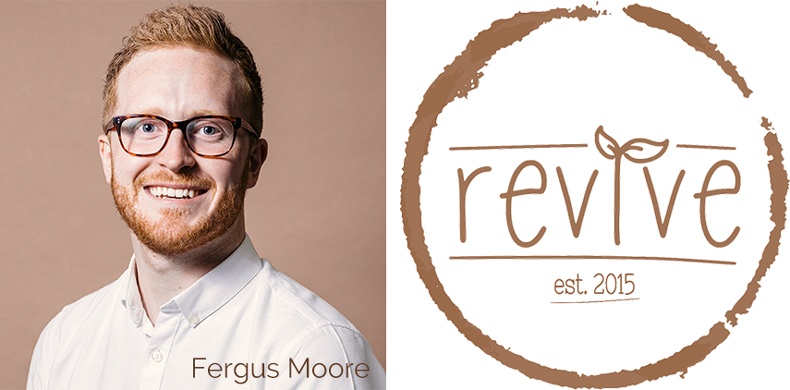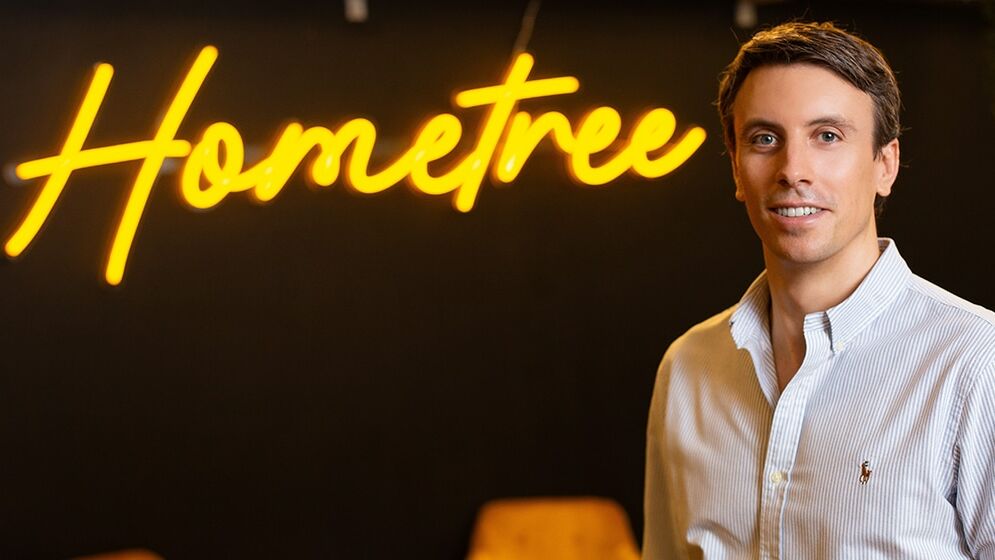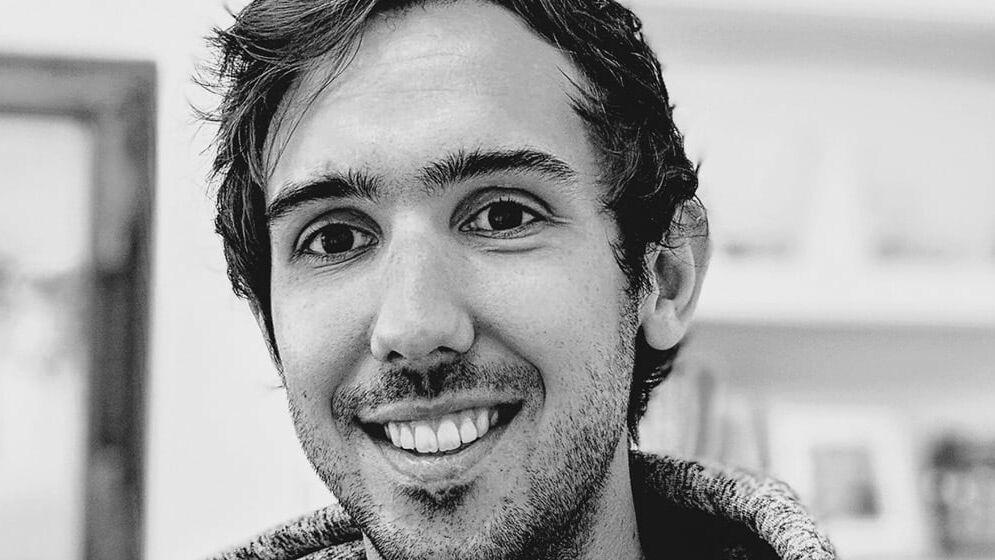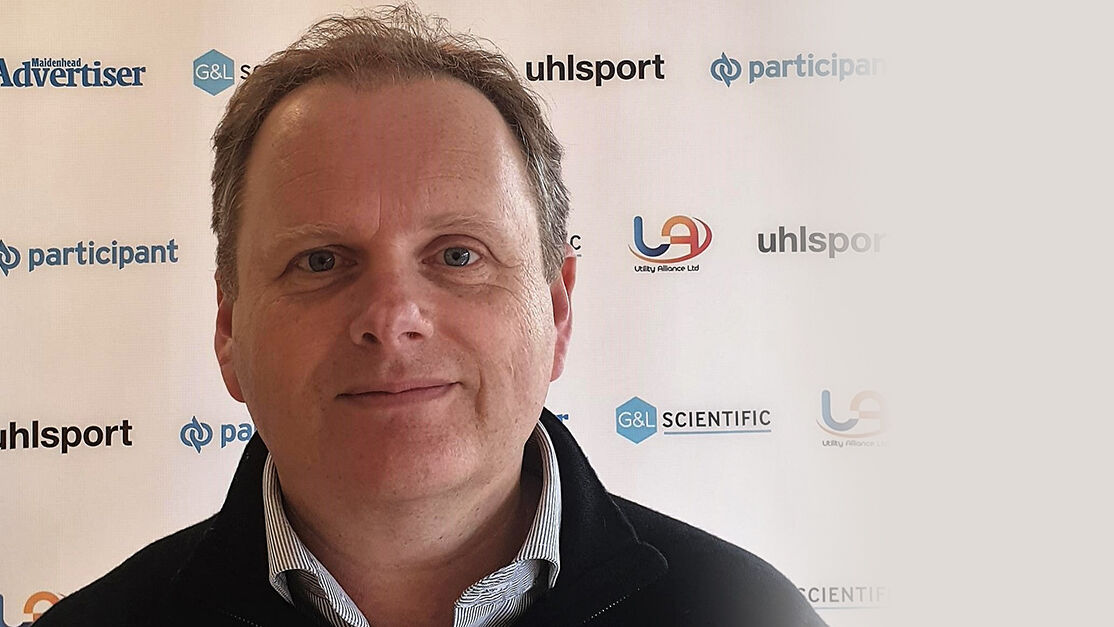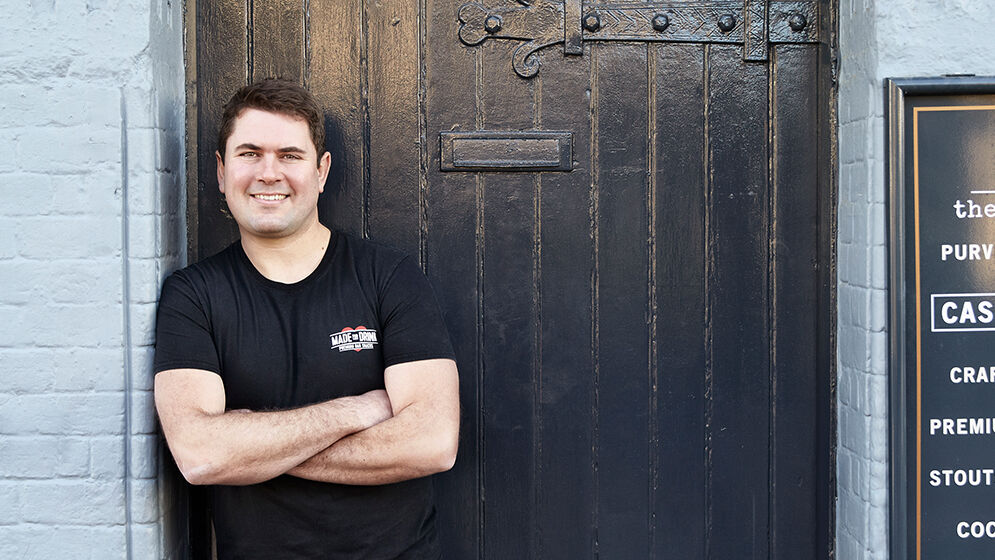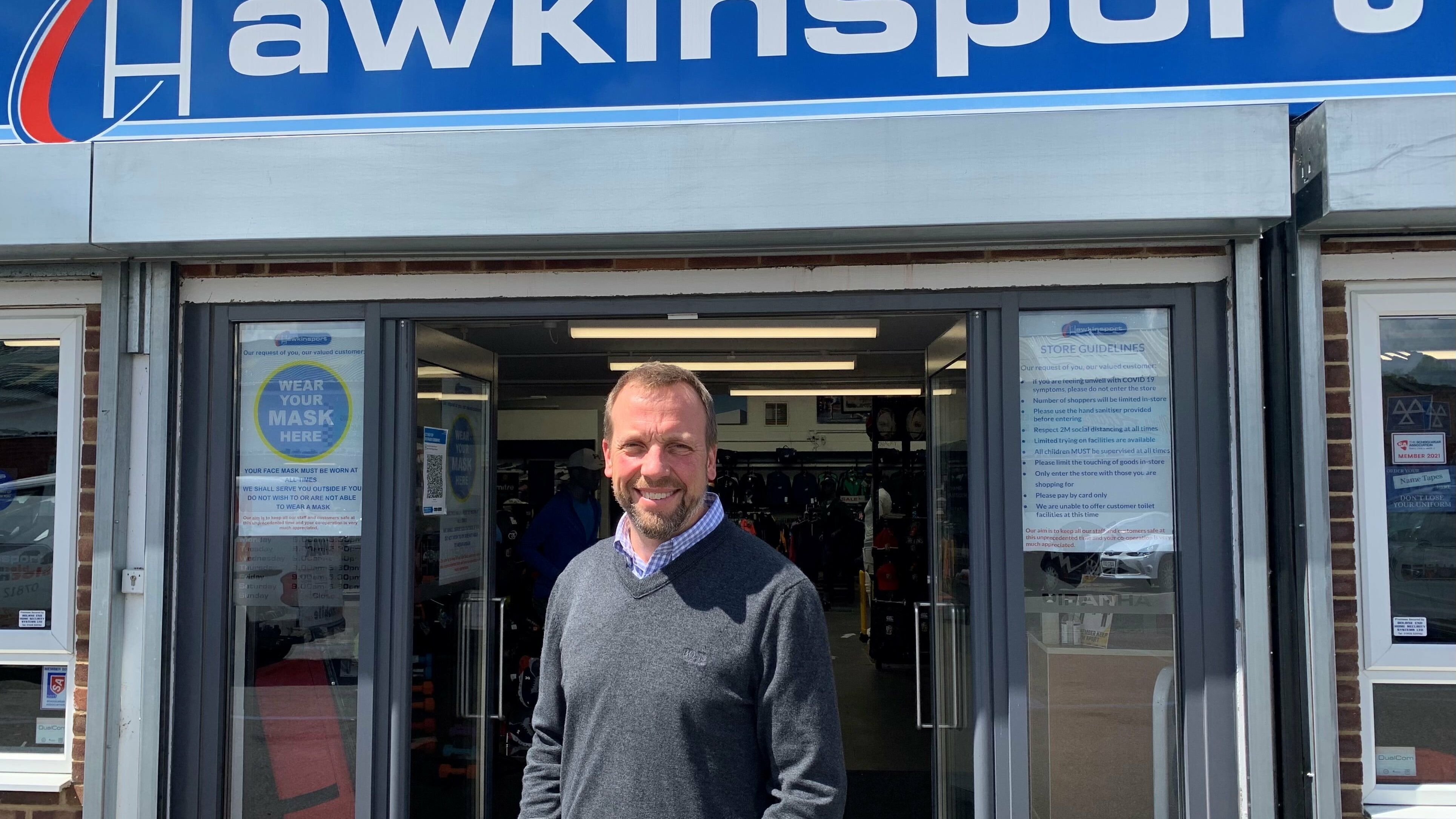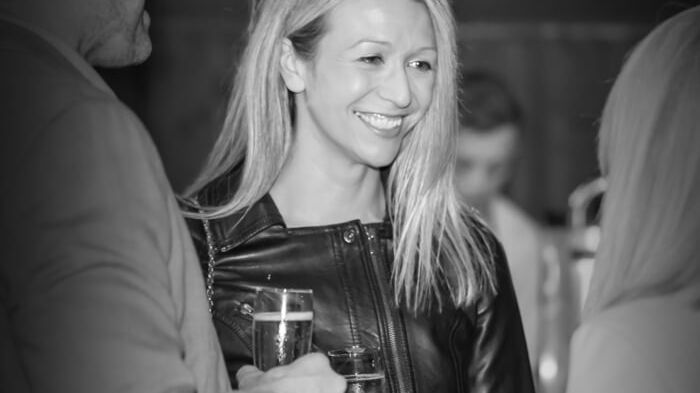
Interview: Fergus Moore on finding a replacement for palm oil
They used to say ‘where there’s muck, there’s brass’, but perhaps the saying needs a 21st century update to ‘where there’s muck, there’s a social entrepreneur’!
Every so often an idea comes along that makes you think – ‘that’s genius, but why are the big boys not already doing it’? That’s certainly what we thought when we heard about Revive Eco, a Glasgow based company on a mission to make a positive impact. They hit the headlines recently having been shortlisted for a $1m prize fund as part of Chivas Venture – a global initiative in support of start-ups. Just getting to the final 20 was no mean feat! So what do they do? Revive Eco collects used coffee grounds from restaurants, cafes and offices and processes them into a range of environmentally friendly products. The natural bio-chemicals are extracted from the coffee grounds, which are then sold into cosmetic, pharmaceutical and drinks companies around the world.
We were lucky to catch up with Social Entrepreneur and joint founder, Fergus Moore, to learn what life is like for a couple of young upstarts trying to get a world changing initiative off the ground, whilst still at university – here’s what we learned.. (Interview by Ross Wilson).
Ross
So, being so young in business, has this helped or hindered you getting this far?
Fergus
I would say it’s probably a bit of both at different times. At some points we’ve actually played on it – almost played the “daft wee laddie” mentality so going in to speak to big partners that are way beyond anything we’ve dealt with before – sometimes they’re slightly more open to opening their doors if we’re coming in with “we don’t really know what we’re doing but it would be great if we could talk to you” than if we go in and act as though we’re bigger than we are.
Ross
Talking of opening doors, how do you build a network at such a young age – particularly the like of VCs, private equity or business advisors? Was that a challenge for you?
Fergus
Certainly was a challenge but it was something that Scott and I focused on a lot for the first couple of years. When we first came up with the idea for Revive it was in 2013. We were just going into third year of University so we both still had two years of Uni left and rather than deciding to drop Uni and go full time with the business, we opted to stay on and focus on building a network of as many people as we possibly could over that two years so that when we graduated we would be at a point where we could step in and start the business. Also we would have at least the beginnings of a good network of people around us.
Ross
So how do you build a network from a standing start and at such a young age? Who are your “go to” people – was it the University, was it an Entrepreneurs Club?
Fergus
It was initially at the University of Strathclyde here in Glasgow. They have a really strong network – it’s called the Strathclyde Young Entrepreneurial Network. They have an Enterprise Hub so that does free office space and a wee bit of mentoring to student start-ups – we were part of that – and they run a lot of events where they bring in everybody right through from graduates up to chairmen of big Chartered Accountancy firms, and many smaller firms and lots of people from the University – just a huge range of different people are always there.
Ross
Did they bring investors as well?
Fergus
There’s an Angel Investment Syndicate at Strathclyde so they would quite often be there and they were the likes of John Anderson and a couple of other very successful Strathclyde Alumni – but I think when we were going through that network we were naively trying to avoid raising investment so we weren’t really opening those conversations. But looking back, yes, we probably could have maybe sped up things slightly had we spoken to them back then.
Ross
How do you create your creditability? Did the creditability for you guys come from the idea you got – somebody went “wow” then the penny drops – “what a great idea – yes let’s look at that further?” Did it come from you as individuals being very impressive on stage? How do you feel that all happened?
Fergus
I would say that it was probably threefold. It came partly from people. I think Scott and I worked very hard on presenting the idea in a very engaging way that got people to understand the idea quite quickly. Secondly it was the network so building up the network of really experienced people around us rather than turning up at whatever they were. We were getting an introduction through, say Chartered Accountants, so that straight away gives us credibility. Then thirdly was awards and competitions. So it was quite early on we won awards from things like Shell, Scottish EDGE here in Scotland then a couple of different things that we could point to and say “well they believe in what we’re doing as well” – and that gave us a bit of cash or an award or whatever.
Ross
How about training around your presentation skills or is it something which you’ve learned on the hoof?
Fergus
It would be all pretty much on the hoof. I mean, I quite often tell a story that at school I would stay off school on days when I had to do presentations.
For standard grades or whatever if we ever had presentations, I would normally miss school and do it to a closed room so it would just be me and the teacher and maybe one or two other students because I was so terrified of it. But I think just throwing myself into it at University and then now sort of post-graduation with Revive, it’s all just been a bit of a massive learning curve for me. I think I could always write an engaging presentation. I feel that Scott and I both have quite strong skills when it comes to that but it was the nerves that would always get to me.
Ross
Does having a Scottish accent make a difference?
Fergus
Yes! We’ve presented a few times down south and there’s always a good reaction – I think people perk up – One, because you’ve got a different accent and two, at times I think if I’m speaking a wee bit quickly they need to listen. So it actually helps because they’re paying more attention than they normally would be, even just sub-consciously they’re taking in more information from me.
Ross
You started out primarily as a logistics and fulfilment company and your strategy is to move it towards a green technology business.
A lot of businesses don’t spend enough time being strategic. What’s your experience there?
Fergus
Initially we spent most of our time on operations – certainly the majority maybe 75% of our time on operations – where now we are shifting much more towards the strategy side, the logistics side of the business in terms of collections and things. It’s all run through a Resource Management partner so that whole side is taken care of for us.
The process side of things in terms of extracting the oils and everything, we’re working with a research institute in Germany and they have a lot of their expertise in perfecting technologies like this so quite a lot of workload is taken off our hands there. So that leaves Scott and I with a lot of time to focus on developing the brand, developing strategies of how we want to enter the market, developing our network further because that was something I think we dropped the ball on a wee bit after developing it so much in the lead up to graduating. I think we almost felt “well that’s it we’ve got a network now” which obviously it just isn’t feasible because as we face new challenges we need new people around us.
Ross
How important is that to you to stay ahead of the game if you like and train yourself and invest in yourself and your team going forward?
Fergus
Yes, massively. I think that in Scotland we’re quite lucky, for example if you’ve won Scottish EDGE you get access to a lot of free courses on leadership and team building and things like that. We want to take advantage with as many of those as possible but we also do understand that the chances are we are going to have to invest in it as well. I was a manager in Marks & Spencer – that’s about as much real leadership experience as I have and Scott was a line manager in a Scottish Events Campus here in Glasgow as well so we’ve a little experience but not leading a company which is a different kettle of fish. We know that we need to and that’s something that we‘re working on at the moment because I guess we need to understand what Scott and I don’t know to develop our skills. Obviously Scott and I have similarities in the way we work but there is also no point in both of us going on the exact same courses because we’re just going to end up as the exact same person.
Ross
Do you have regular strategy days and would you recommend that small growing businesses do?
Fergus
I would absolutely recommend it.
I think that we try and discuss strategy any time that I think it makes sense to discuss the long term visions, like even if say, a big potential client comes along and maybe they’re way too big for us or it’s far too big an ask, that quite nicely leads us on to, “is that something we want to then aim towards or is that just too big for us and it’s always going to be too big for us or they’re not the right client” and that leads on to “where would we need to be for that to make sense?”, “do we want that to be part of our vision…?” Quite often clients come along and they bring up something we’ve never even thought of and either we can say “no that’s not what we do thanks for getting in touch but we do something else” – sometimes that does make sense. Obviously at the same time we don’t want to just flip and flop between anybody who gets in touch with “oh yes let’s do that let’s do this “ – but yes we try and discuss long term things as we go along.
Ross
You’re clearly keen to make an impact, how do you see yourself getting to a position of influence?
Fergus
The way I look at myself is I see a lot of similarities to the likes of Sir Tom Hunter who is now massively, massively influential in the Scottish economy and he’s done that through his own foundations, his own – it’s almost like through his own work – and I mean it’s all the Hunter Foundation, and there’s the Hunter Centre here in Strathclyde. I don’t know if it would necessarily be almost creating myself as a brand. I always feel that the best way to have an impact is through impactful entrepreneurship. I feel that business is the best way to have an impact.
Ross
I read you are motivated, it would appear, by more than just profit. You bring into the equation corporate and social responsibility. How do you think that goes down with your investors? Are they going “hey we love that stuff but do you know what Fergus, keep your eye on the bottom line because we want to make money out of you?
Fergus
So we’re big advocates of the circular economy, that’s where we say our impact is, is in the circular economy and again I think it comes down to how we tell the story, how we put ourselves across. We always say that the circular economy has two words in it – there’s the circularity point but there’s still the economy – it needs to make financial sense as well as environmental sustainability sense.
The company needs to be economically and environmentally sustainable and each of them fit in with each other and I think that our investors at the moment and all our different stakeholders, have understood that look at it that if we focused only on the environmental side of things the chances are we’re not going to be around in ten years so …
The impact on the environment is nothing in comparison to making an economically sustainable business which can have an impact for the next 100 years so that’s always our answer to that problem.
Ross
What was the best piece of advice that made you what you are today?
Fergus
Oh, that’s a big question. I think probably … I mean I couldn’t necessarily hang it on a single sentence but certainly the biggest piece of advice we’ve got over the years has been to focus on the vision, on how we’re going to make an impact and the money will follow. I know it’s maybe a wee bit clichéd and I think we always thought it was clichéd but at the same time we took it to heart. We have focused on developing something that we feel truly passionate about rather than focus on something that can make lots and lots and lots of money. Now I think that passion has led people to believe in it far more than necessarily if we’d just gone across with “we’ve created this business model and here’s how much it’ll make”. I think that certainly stood us in really good stead over the years.
Ross
So how did you manage to get investment?
Fergus
Our Resource Management Company up in Glasgow introduced us to their parent company down south basically because we were looking for investment. They liked what we were doing, basically signed heads of terms to co-fund with Zero Waste Scotland brand. Zero Waste Scotland then took so long that in the interim their company down south actually got bought by a bigger company so then we went back to them and asked if our investment was still safe. They were like just come down and pitch again to the new board and it should be fine.
We pitched to them and it actually turned out that the board of the new company liked it so much that they personally invested in us – so to be honest it actually ended up really working in our favour
As having them as individuals has sort of taken away any perceived alliance with waste management and it also means we have a huge amount of experience coming in. Their company is aiming to hit over a quarter of a billion turnover this year. That gives us really truly valuable experience.
Ross
On that subject, can I just ask what the biggest challenge on funding has been so far?
Fergus
I’d say unfortunately for us it’s been time. We wanted to raise money through the Zero Waste Scotland’s Circular Economy Investment Fund and because of the amount of money we were going for and the stage of the business we were at, it just took a very very long time because there was a lot of due diligence and things. I guess it was understandable but it’s kind of pushed us maybe eighteen months back behind schedule.
We were hoping to get things up and running at the beginning of 2018 and we’re now probably not going to be up and running until springtime 2020 unfortunately.
Ross
On the fund raising, obviously you’ve said you got put back some eighteen months, what would you do differently if you could to avoid that?
Fergus
So we probably could have put a bit more pressure on them, but we were at that point of “don’t want to tread on their toes, they’re giving us the money”. Maybe we could have been a bit more like “come on we’ve signed heads of terms, you’re holding up the entire business here”.
In terms of the grant funding though I honestly don’t think there was anything we could have done differently. We could have gone for different pots of funding that might have taken less time, but now that we’ve gone through that we have support and funding from literally the best Government organisation for what we’re doing on the project so we can’t really complain.
Ross
To anyone doing what you’re doing especially entrepreneurs really wanting to make an impact, what advice would you give them?
Fergus
I think for us one would be “everything takes longer than you expect it to”.
Patience is absolutely a virtue. We were at an event recently at the University and there was a young student business and they were talking about “we’re really passionate about what we’re doing and all the profits that we make in our first year are going back in the business”. We were like “you’ve barely even developed a business plan” and they’re already talking about all the profits they’re going to make”. We were like that – we were the exact same at that stage, we were like “once we make our first million by year two we’ll be able to do this that and the next!” But yes everything takes longer – investment takes longer. Even when Scott and I first set out it was like “there’s only two of us we can literally sit down discuss something and make our decision there and then” but it really isn’t that simple and if you want to make the right decision, it shouldn’t be that simple.
Yes, I would say patience is definitely the name of the game but at the same time don’t sit back on your laurels and use that as an excuse. There also needs to be the kind of 70 hour weeks where you literally run yourself into the ground because that’s just the way of it with a start-up. Those times come and there will be other times when literally nothing happens for a couple of weeks – you just have to be ready for those peaks and troughs.
Guide to selling your business
Your simple guide to helping you maximise the value in your business.
